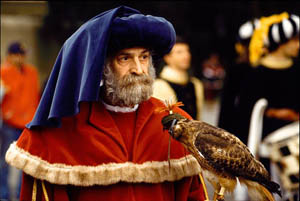

Last, what can your characters do to surprise you? Now this may sound weird, but characters sometimes don't do what we expect them to do when we put them on the page. That is, if I know why a character wants a particular thing and I understand where they're from, I have an understanding, not only of how hard they're going to try to get what they want, but how resilient they'll be when rising actions are put in their way to obstruct their path. Where are they going? Pairing this question with where are they from gives you a complete character arc. It's also crucial in helping us answer the next question. And it can be instrumental in helping us understand why a character desires a particular thing. Where are they from? As in, what is their emotional background? Did they have two loving parents? Or were they raised by a single, overworked mother? Did they lose a sister when they were very young? Were they bullied in junior high? Where are they from emotionally helps us understand a character's motivation for acting the way that they do.

What are your characters biographical information? What city, state, town, or country are they from? Did they grow up as a kid on the streets of New York City or were they born and raised in a farm in Indiana? Understanding this biographical information helps inform us of what a character wants because it can help us understand where they came from. Where are they from? There's both a literal answer for this and a deeper, more emotional answer. So when compiling a list of traits for your characters, make sure that their weaknesses are more interesting than their strengths. Superman isn't an interesting character because he's invulnerable, Superman's an interesting character because he's vulnerable to kryptonite. Each of these characters were more interesting to follow and to read about because of their weaknesses, not their strengths. Think of the list of the greatest characters in fiction: J Gatsby from The Great Gatsby, Holden Caulfield from The Catcher in the Rye, Harry Potter from the Harry Potter series. Now while you may want to hang out with someone who's honorable or virtuous in real life, we don't really make for interesting characters on the page. What are their weaknesses? Many writers give their characters traits that make them honorable, virtuous, and in many cases invulnerable. A character that wants something is will. A character that needs something is fate.

This is different from a character that needs something. Desire is a crucial component in creating a believable that we can follow. Even if that something was a simply a drink of water. Kurt Vonnegut, author of Slaughterhouse Five and many other great novels and stories wrote that the first step in writing a good story was creating a character that wanted something. What do they want? This is the first and most fundamental question you have to answer when creating a good character. Crafting great characters is covered in any Bloom's course on character here on Coursera, but here's a supplement to her thoughts on the five key questions you should ask yourself when creating a great dynamic character. In this section, we're going to look at how character and action can work together to create an exciting plot. In both these examples, character is an integral component imply. Hayao Miyazaki, one of Japan's most celebrated animators, director of Spirited Away, Howl's Moving Castle, Ponyo, and many others, said that what drives animation is the will of the characters. John Gardner, an American Novelist, once quipped, there are only two plots in all of literature: someone goes on a journey and a stranger comes to town. Welcome to Segment three, Character + Action = Plot.


 0 kommentar(er)
0 kommentar(er)
